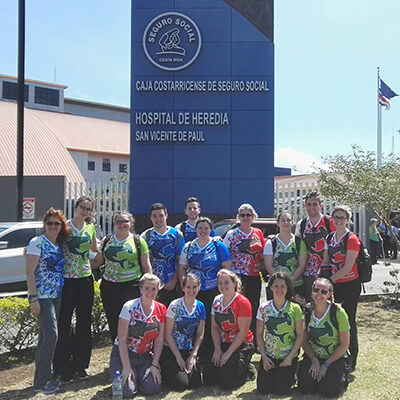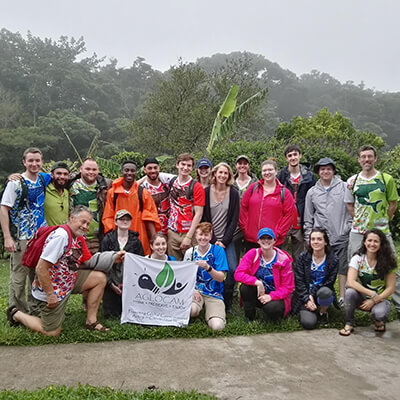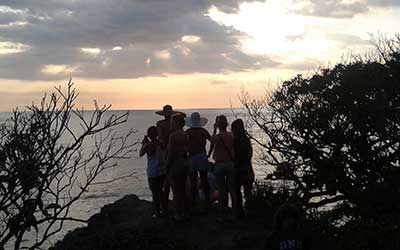Topics Covered
The ecology of terrestrial ecosystems in Costa Rica, including rainforest, cloud forest, dry forest, and agricultural systems.
Similarities and connections between native ecosystems and agricultural systems.
How climate patterns determine landscapes across Costa Rica, leading to different ecological and agricultural communities.
How species are evolutionarily adapted to particular challenges of tropical ecosystems.
Why ecological principles are describing nowadays sustainable agricultural practices.
How agriculture and land use in Costa Rican have impacted biodiversity in positive and negative ways: learning about “land-sparing” and “land-sharing”.
A particular stress or challenge like insufficient water, too much rain, or poor soil nutrients that affect ecological communities in the tropics, and the evolutionary adaptations to solve such an abiotic stress. How specific agricultural systems deal with your these stresses or challenges.
A unique co-evolutionary relationship between tropical species in which at least one species depends on the other. Why highly specific relationships seem more common in the tropics compared to temperate ecosystems.
The evolution, ecology and conservation of specific groups of birds, mammals, reptiles, amphibians, insects, and other invertebrates.
A specific pest in a tropical crop system. How that pest is managed in both conventional and sustainable agroecosystems.
Ecological and economic challenges of growing any particular crop.
How the world diet has changed over the last few decades in relation to tropical sources for foods, and the ecological and economic impacts on countries like Costa Rica.
How is climate change affecting ecosystems in Mesoamerica?
How effective are carbon-sequestration programs that plant trees in the tropics?
Costa Rica plans to become carbon neutral. What are the strategies to accomplish that goal, and what are the challenges?
The national conservation system in Costa Rica and its challenges.
The effectiveness of economic incentives for conservation in Costa Rica, such as “environmental service payments”.
Curriculum Integration
We are characterized by our highly cooperative way to design study abroad programs for all types of courses and professors, any time of the year. We are committed to deliver the best academic experience to you and your group.
Communication leads to Community!
Our priority is your expectations; that is why at AGLOCAM communication before, during and after the program is essential. Before programs start, we keep constant communication through virtual meetings and site visits from faculty (if desired and possible) in order to discuss program’s design, budget, logistics and the overall itinerary.
Program Design & Preparation
- Itinerary is set up months before your departure from home and is thoroughly communicated with the staff of the visiting institution.
- Pre-departure info sessions with staff and students are set up in order to maximize your understanding of safety procedures, legal matters, and what to expect in Costa Rica.
- AGLOCAM takes care of every single detail before your arrival. What will you have to do? Follow our instructions, get your luggage ready and prepare for your adventure!
- Our programs include two bilingual site specialists accompanying the group 24/7.
- Our accommodation options always involve pleasant and environmentally sustainable places rather than 5-star chain hotels.
- Our learning and social atmosphere develops around safety, cleanliness and a homely attention.
- The local transportation we use in all our programs possess all the safety requirements, insurance and knowledgeable drivers we need to travel around Costa Rica.
- Our programs are characterized by exposing participants to SMEs within local communities, in order to exchange new ideas, strategies and procedures that benefit micro economies of the world.






All our short-term programs are customized to your academic goals, budget and interests; while we also ensure participants an enriching cultural awareness that only on-site visits offer.







